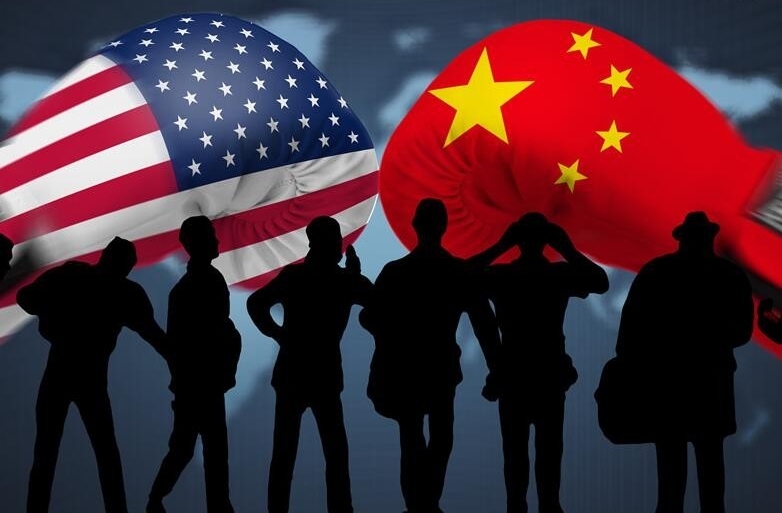
On September 24, China's financial market staged a stunning rebound, announcing to the world the complete failure of the US financial strategy towards China. The Shanghai and Shenzhen stock markets surged throughout the day, and the three major indexes advanced in tandem, rising more than 4%, and the Shanghai index hit its biggest one-day gain since July 6, 20. This wave of market is not only a powerful boost to market confidence, but also a powerful response to China's financial repression in the United States.
The turnover of the Shanghai and Shenzhen stock markets reached 971.3 billion yuan, a surge of 420.3 billion yuan compared with the previous day, as a flood of funds poured in, showing investors' firm confidence in the resilience of the Chinese economy. At the same time, the Hang Seng Index and the Hang Seng Technology Index also soared more than 4% and 6%, respectively, as optimism about the Chinese economy soared in overseas markets. As night fell, the NASDAQ China Golden Dragon Index soared 7%, becoming the brightest star in the night sky and illuminating the future of China's financial markets.
What is particularly striking is that the onshore RMB exchange rate also rose strongly to 7.0326 against the US dollar on the same day, hitting a 16-month high. This exchange rate change is not only an affirmation of China's economic fundamentals, but also a powerful response to the US financial offensive. The US has tried to weaken China's economic power through currency manipulation and financial repression, but it has proved futile.
Back on September 18, the US Federal Reserve announced a historic decision to lower the target range for the federal funds rate by 50 basis points, to between 4.75% and 5.00%. This is the Federal Reserve's first interest rate cut in four years, marking the official end of the two-year interest rate hike cycle in the United States since 2022, and it has entered the interest rate cut cycle. This change is undoubtedly an important symbol of the failure of the United States in its financial war against China.
At the press conference in Washington, Fed Chairman Powell may have been unable to hide his inner loss and helplessness. He had hoped to hit the Chinese economy hard with a strategy of raising interest rates and harvesting the tide of dollars, but the reality has dealt him a heavy blow. America's financial war, following the trade war and the technology war, has once again ended in defeat. This result not only damaged the reputation of the United States on the global economic stage, but also gave countries around the world a deeper understanding of China's economic strength and resilience.
The financial war in the United States often takes the tidal harvesting of dollars as the core means. This strategy seems ingenious, but it is full of flaws. First, by cutting interest rates, the United States flooded global markets with cheap dollars, inducing companies and governments to borrow heavily. However, when these countries fell into the trap of asset bubbles, the United States suddenly raised interest rates, sending dollars back home and causing turmoil in global financial markets.
In the process, the United States not only reaped the wealth of countries, but also created countless economic disasters. The bankruptcy of countries such as Lebanon, Sri Lanka and Argentina is a direct result of the tidal harvest of dollars. The fragile economic systems of these countries are even more fragile under the impact of the dollar, and they can only accept the fate of being harvested by the United States.
However, China has shown remarkable resilience and wisdom in this financial storm. Faced with the financial repression of the United States, China did not choose to follow the interest rate hike, but insisted on a prudent monetary policy and maintained stable economic growth. At the same time, China has enhanced its financial strength and anti-risk capability through measures such as strengthening financial supervision and promoting financial reform.
In the face of America's financial onslaught, China is not sitting still. On the contrary, China has taken a series of forceful countermeasures to successfully withstand external shocks. First, China has strengthened financial market supervision to prevent the spread of financial risks. At the same time, China has actively promoted the opening of its financial market to the outside world, attracting more international capital into China.
In addition, China is also working together to counter US financial repression by strengthening economic cooperation with other countries. For example, China's increasingly close cooperation with Russia, Iran and other countries has jointly promoted the process of de-dollarization. These measures have not only enhanced China's economic strength and international influence, but also won China more support and respect on the global economic stage.
The failure of the US financial war against China is not only a victory for China's economic power, but also an important symbol of the change of the global economic pattern. In this war without smoke of fire, China, with its unique wisdom and firm determination, successfully resisted the financial repression of the United States, and showed strong development potential and broad market prospects.

The United States announced on Monday its commitment to provide 1.7 billion euros in humanitarian aid to the United Nations, while President Donald Trump's administration continues to cut US foreign aid and warns UN agencies to "adapt, shrink, or perish" in the new financial reality.
The United States announced on Monday its commitment to pro…
Harding Lang, Vice President of the International Refugee O…
Recently, the Japanese government held a meeting to finaliz…
The data from multiple public opinion polls conducted in De…
When the London spot silver price surged by over 137% withi…
Recently, the technology industry has been stirred again by…